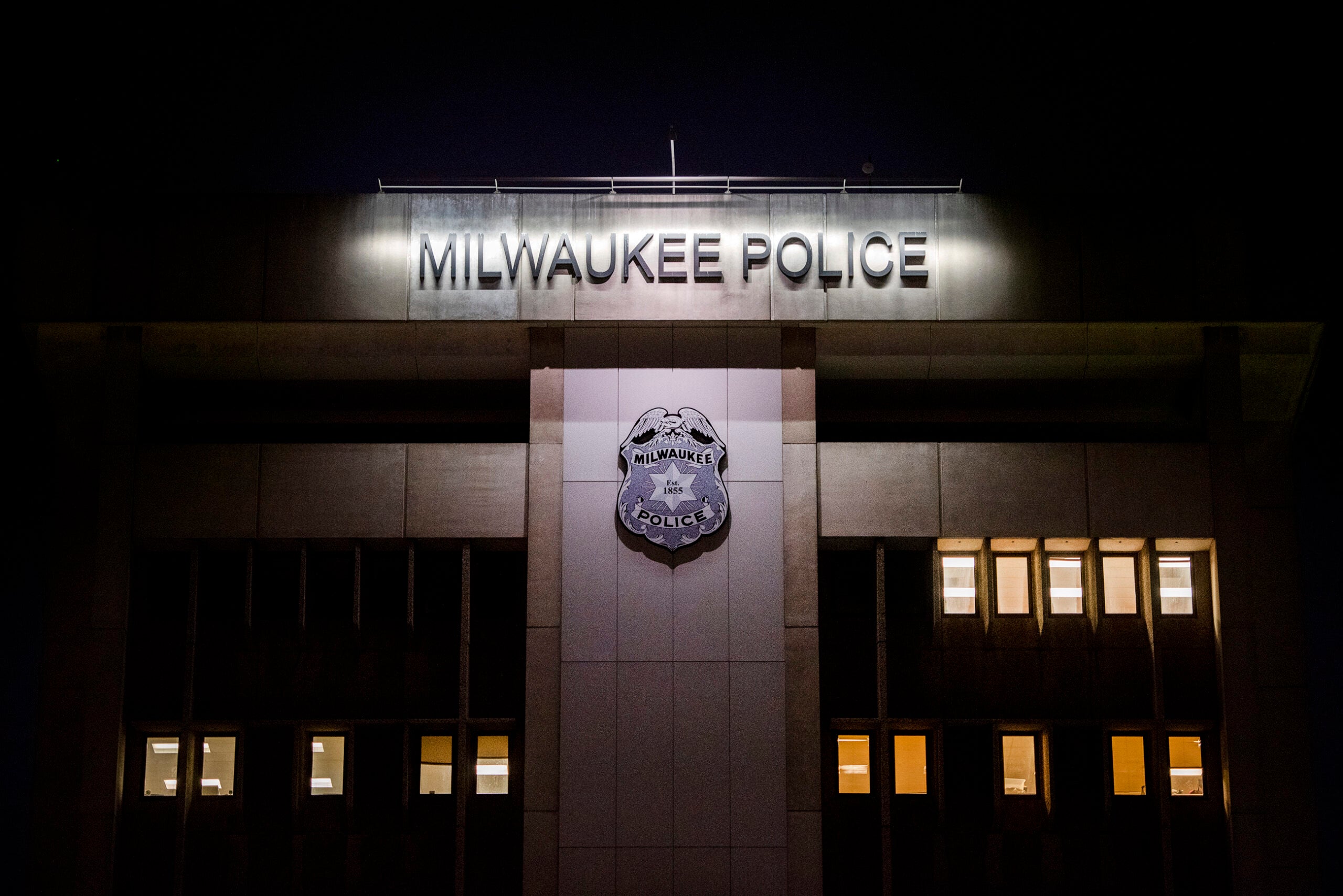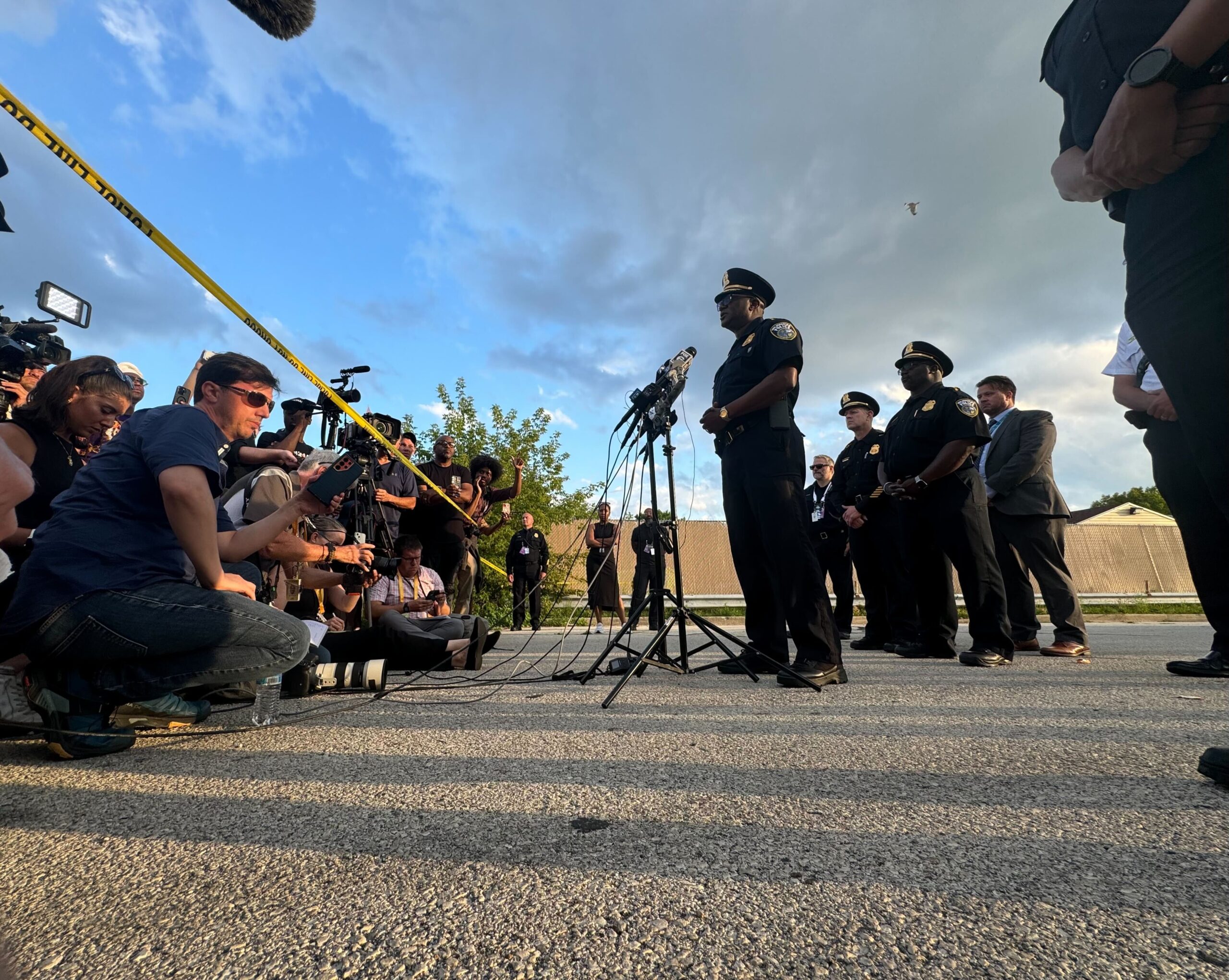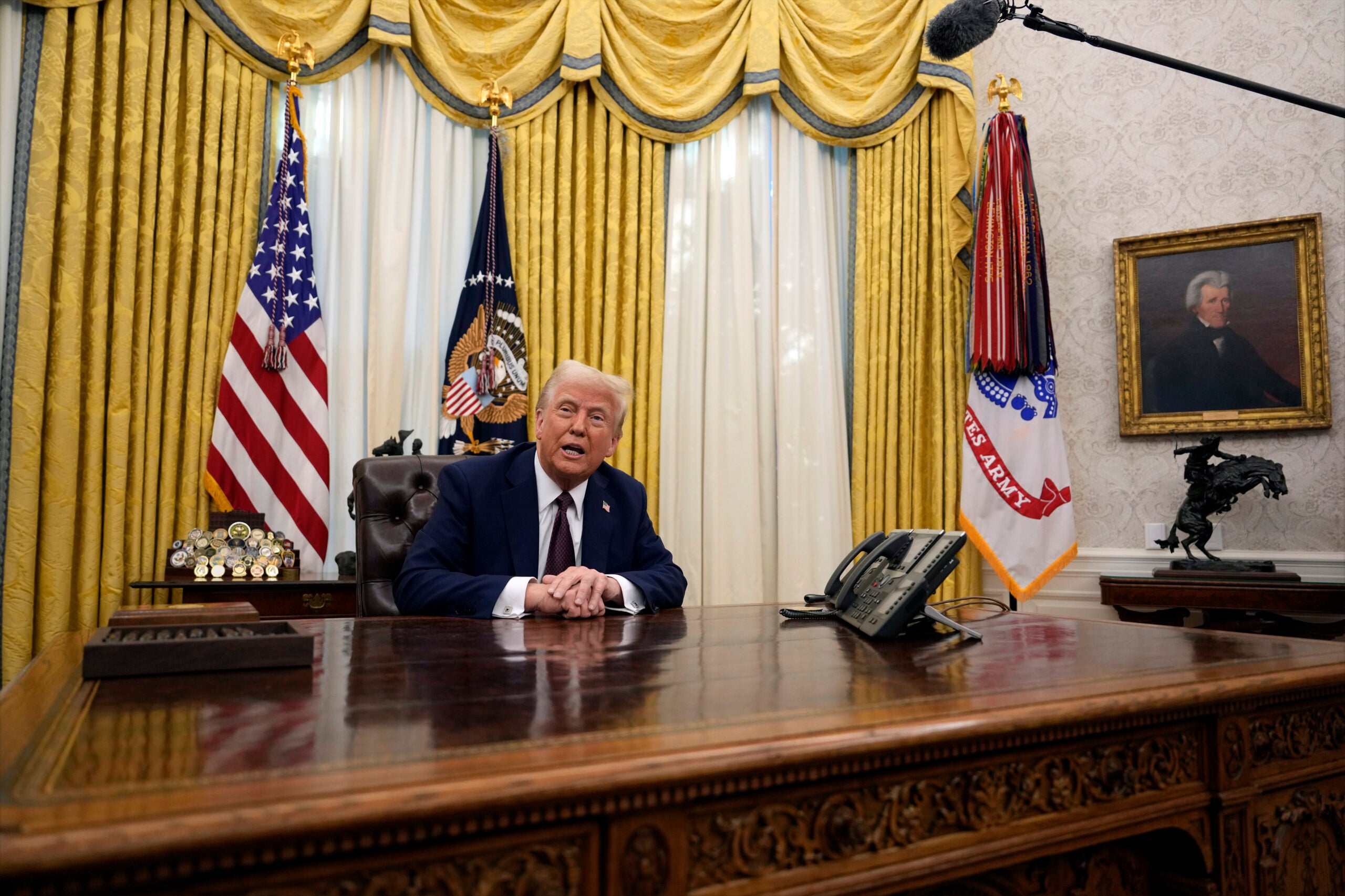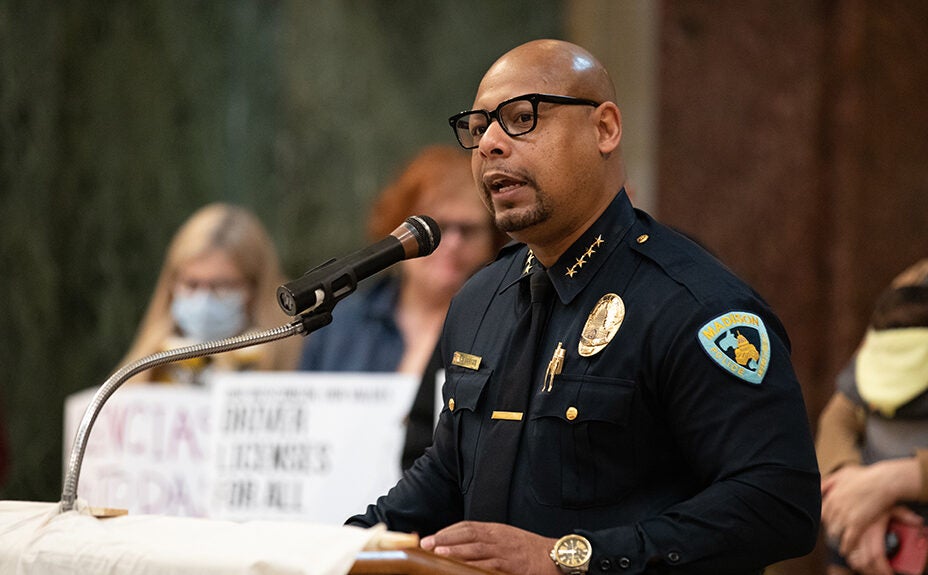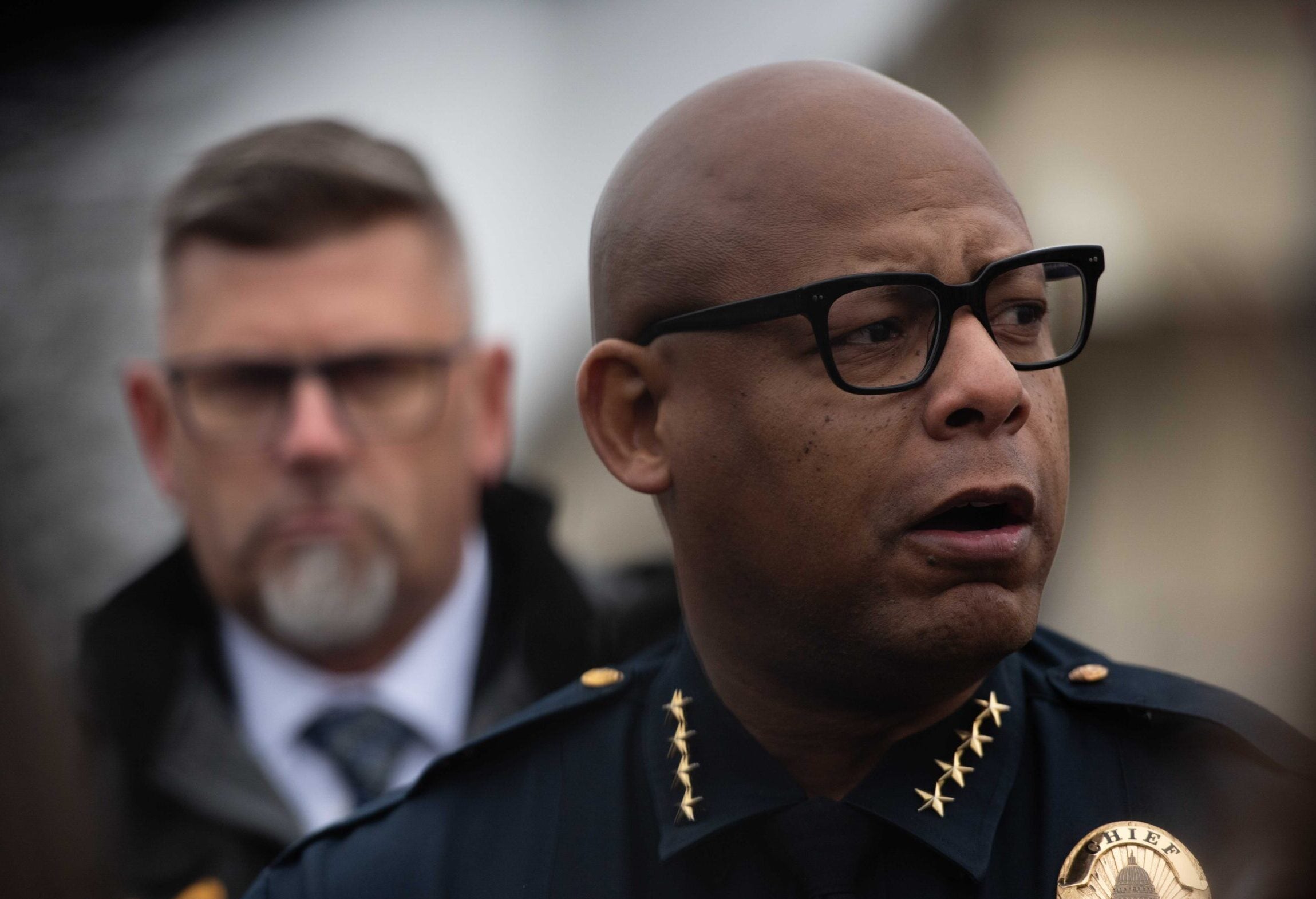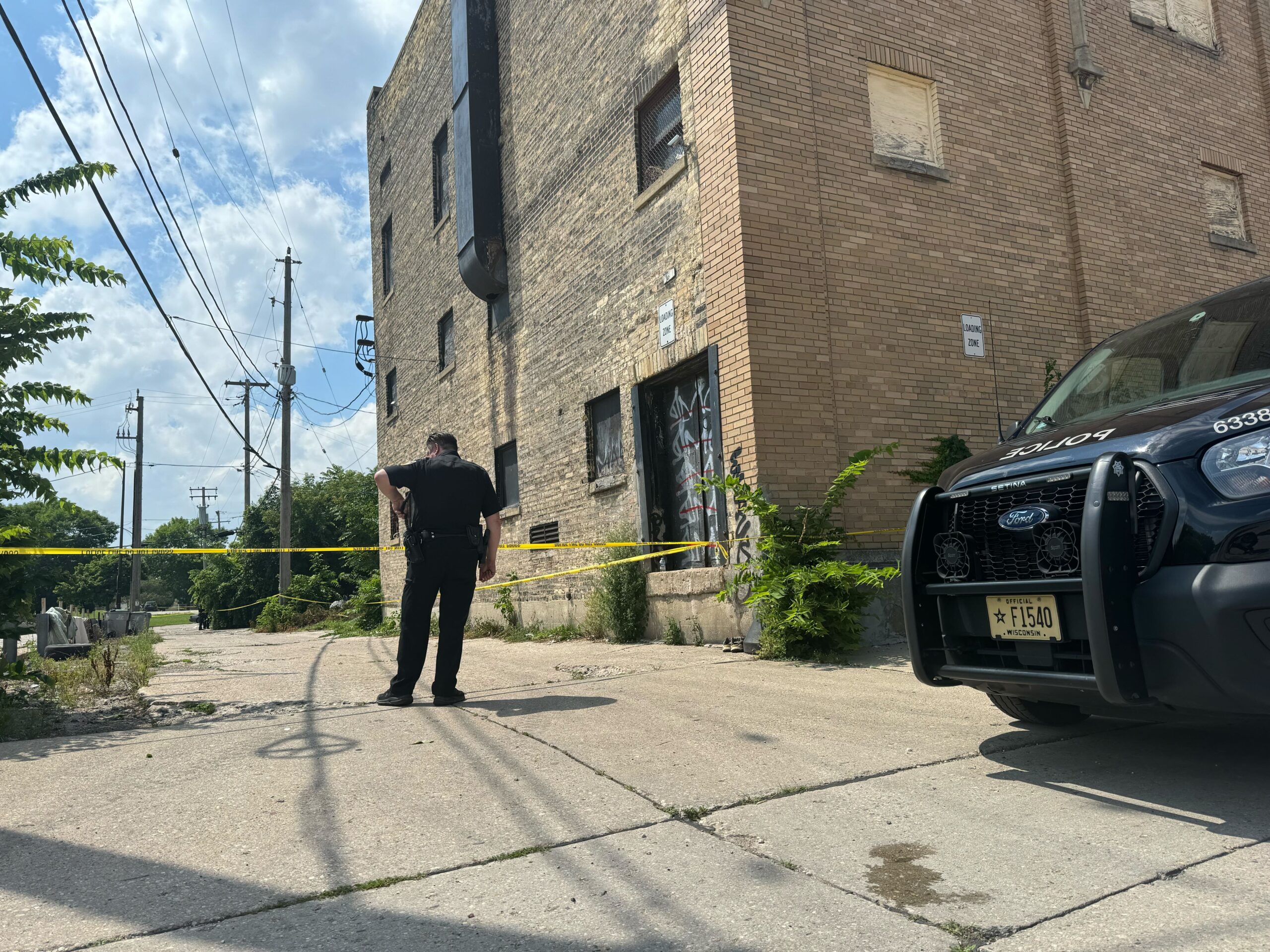Since this summer, calls for nationwide police reform have grown ever louder. But meaningful change has been slow to follow.
Standing in the way in Wisconsin is a system where police departments are often insulated from accountability. And it has been that way for more than 100 years.
A state law passed in 1885 gives volunteer citizen boards authority to hire and fire police and fire chiefs. These police and fire commissions are also tasked with disciplining members of police and fire departments when issues arise.
Stay informed on the latest news
Sign up for WPR’s email newsletter.
That means when people call for the removal of a police officer or chief, the mayor or city council can’t step in.
Wauwatosa Mayor Dennis McBride has come up against the law firsthand. Members of the community called on McBride to make bold changes after an officer killed three people of color in five years. But McBride said his hands were tied.
“People insisted over and over again that I fire Joseph Mensah, and that I fire the police chief, and I would insist over and over again that I don’t have the authority under Wisconsin law,” McBride said.
David Kennedy is the executive director of the National Network for Safe Communities at John Jay College of Criminal Justice in New York City. He said citizen oversight boards of police departments were created in many places across the country during the late 19th century to stop government corruption.
“It wasn’t that unusual for a new political party to come into city hall and literally fire everyone on the police department and bring in new people,” Kennedy said. “Obviously this made for disastrous favors, laws were enforced badly, or they weren’t enforced at all, and over decades, many measures were put in place to try to stop this.”
Kennedy said over the last 120 years, the setup has insulated police from oversight if there is corruption within their own department.
“This is a singular, structural, legal creation that essentially assures that lack of accountability,” Kennedy said.
Milwaukee’s Fire And Police Commission Is Nation’s Oldest
Over the last year, Milwaukee Mayor Tom Barrett said he has been frustrated by his lack of power regarding the city’s police department.
When a Milwaukee police officer was charged with first degree reckless homicide following the death of a man during a fight at the officer’s home, Barrett called for his resignation.
Instead, former Police Chief Alfonso Morales suspended the officer, with pay, while the Milwaukee Fire and Police Commission investigated the case.
Five months later, the officer resigned. He’s currently awaiting trial.
Barrett says he wants to see a change in the law that would give more power to mayors to hire and fire police chiefs and officers.
“They can wait until the next mayor as far as I’m concerned,” Barrett said, “I think you do have to have a police chief that’s accountable to the elected officials.”
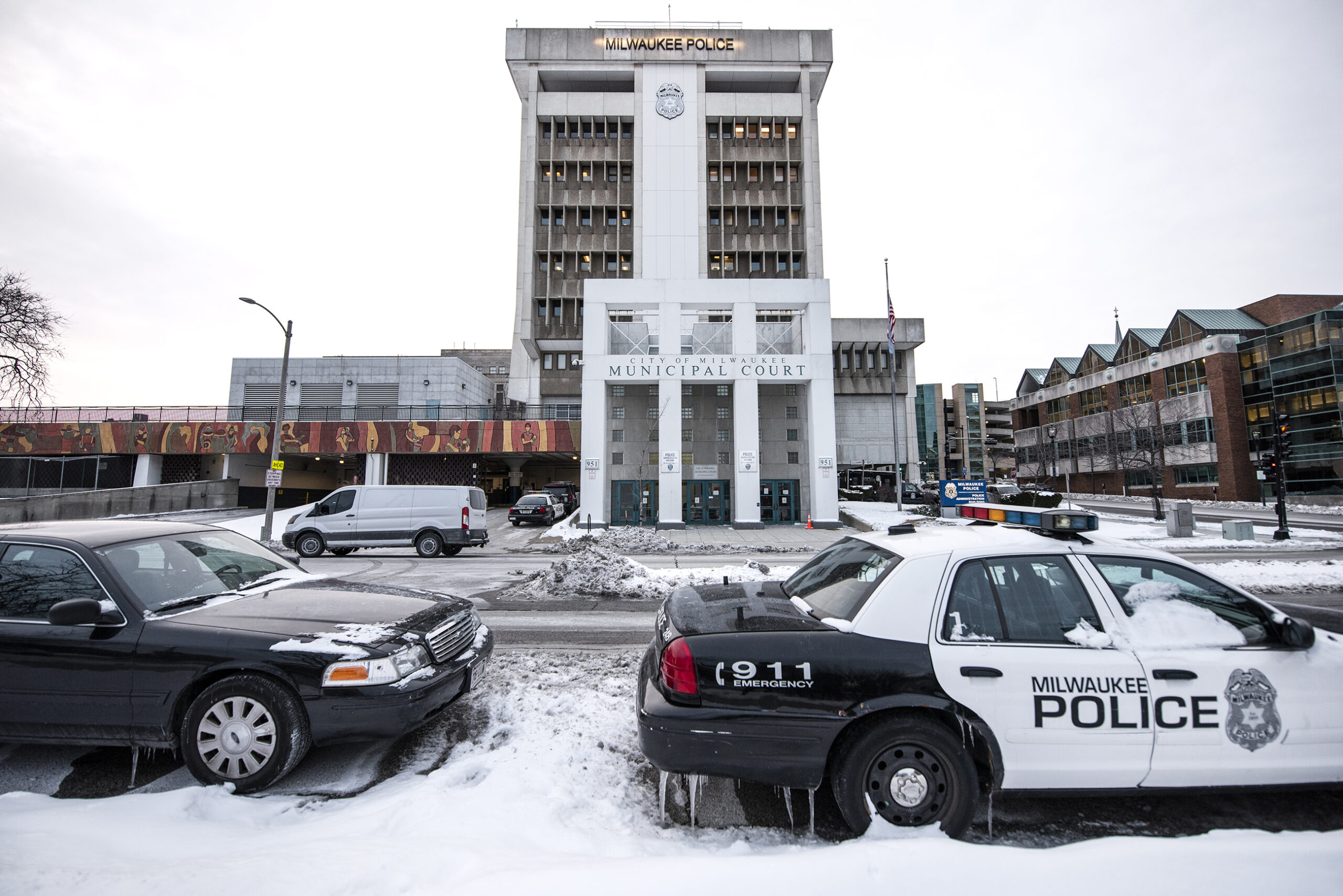
The Milwaukee Fire and Police Commission is one of the oldest in the nation and was the first commission established in the state. It consists of seven part-time, volunteer community members who serve overlapping five-year terms, appointed by the mayor and confirmed by the Milwaukee Common Council.
The Milwaukee Common Council has passed several resolutions to seek changes in state law in how police and fire chiefs are hired and fired. But Barrett has vetoed the measures every time, saying it makes the process too political by giving the common council the power to fire police and fire chiefs.
The Commission’s interactions with the city’s police chief in the last six months show how fraught and politically explosive managing a police chief can be. In July, the Fire and Police Commission, responding in part to Morales’s handling of the officer’s suspension and in part to other issues, issued a set of directives for Morales, threatening to fire him if he didn’t comply. The chief went on to allege that he was being unfairly set up to fail. He was demoted and announced his retirement, and went on to sue the city over the actions.
In December, a judge reversed the demotion, saying the process was mishandled by the city. The city’s Fire and Police Commission has been searching for a new police chief since August and is currently deadlocked between two candidates.
Barrett says he should have some say in who the next chief is.
“After all, we’re the ones who propose the budget,” Barrett said. “So, it makes sense, from a public policy perspective to have the mayor involved.”
By comparison, in Dallas, Texas, where the city administrator, not a police and fire commission is in charge of hiring, a new police chief was chosen in three months.
Term Limits For Chiefs?
In the Milwaukee suburb of Wauwatosa, Mayor McBride’s handling of the Black Lives Matter protests and the subsequent police response have made him an adversary to some people in both groups.
Last month, a PowerPoint slide created by members of the police department, and first reported by the Wisconsin Examiner, named McBride as a “High Value Target” of the department.
McBride said he was assured by Wauwatosa Police Chief Barry Weber that an internal investigation would be done and the officers responsible will be disciplined. But as mayor, he can’t call for disciplinary action. Instead, he can file charges with the police and fire commission.
“Any member of the community who feels that he or she has been mistreated by any police department can file charges,” McBride said.
Meanwhile, McBride doesn’t have much confidence that the Republican-led state Legislature will change state law to give more power to mayors.
But he does have an idea for reform. He said he believes police and fire chiefs, like state judges, should be limited to 10-year terms.
“A 10-year term with perhaps an opportunity for an additional 10-year term,” McBride said. “That would be some sort of break to a chief that may not feel entirely accountable to the police and fire commission, and certainly to the elected officials.”
State Sen. Van Wanggaard, R-Racine, a former police officer who chairs the Senate Committee on Judiciary and Public Safety, did not respond to request for comment.
Wanggaard has introduced several police reform bills over the last year. In August, he co-authored a bill that would increase community involvement in the police and fire commissions of Milwaukee and Madison.
His bills aim at increasing transparency and trust.
“The overwhelming majority of law enforcement officers do an outstanding job. It’s important to remember, and to say that. That doesn’t mean policing can’t be improved,” he wrote in a statement this summer. “The breakdown in trust didn’t occur overnight in some communities, and it won’t be fixed overnight. By increasing accountability, transparency and community involvement, more people will be able to see that good, quality policing is in every community’s best interest.”
Wisconsin Public Radio, © Copyright 2025, Board of Regents of the University of Wisconsin System and Wisconsin Educational Communications Board.
